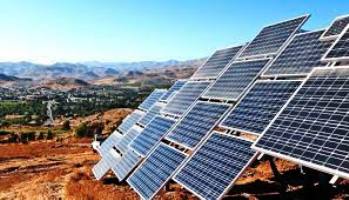Agricultural experts and stakeholders across Africa and Europe have advocated for the widespread adoption of small-scale solar-powered irrigation systems among local farmers as a sustainable solution to the challenges of climate change and food insecurity in Africa.
This call was made during a five-day training conference organized by Africa’s Green Store Network (AGSN) in partnership with the Agricultural and Rural Management Training Institute (ARMTI), held at the ARMTI headquarters in Ilorin, Kwara State, Nigeria, from September 9 to 13, 2024.
The conference drew participants from 15 African countries, including Nigeria, Kenya, Ethiopia, Senegal, and Mozambique, as well as from Europe, representing agricultural development agencies such as Humboldt University, Zuberlin, SLE, and GIZ.
The Executive Director of ARMTI, Dr. Olufemi Oladunni, highlighted the urgency of promoting solar irrigation technology among local farmers to enhance food production and ensure sustainability.
“With changing weather patterns and prolonged droughts, even Southern Nigeria has begun to experience conditions traditionally associated with the North,” Oladunni said.
“We need to expand our irrigation networks and equip our farmers with solar-powered solutions to adapt to these new realities.”
Oladunni stressed that climate change and resource depletion are primary threats to food security in Africa, calling for collaborative efforts to rebuild natural resource bases and develop resilient agricultural systems. “We must focus on agroecology, sustainable practices, and efficient water management through solar irrigation,” he added.
The conference featured presentations from leading agricultural experts, including Professor John Olaoye of the University of Ilorin, who spoke on “Water and Energy: Efficient Solar Irrigation Systems in Africa.” Olaoye emphasized that solar-powered irrigation could provide small-scale farmers with better control over water usage and crop management. “By harnessing solar energy for irrigation, farmers can mitigate the effects of erratic rainfall and ensure consistent moisture for their crops,” he said. “The technology must be simplified for easy adoption by rural farmers.”
Another speaker, Professor John Jiya Musa of the Federal University of Technology, Minna, stressed the need for supportive government policies to facilitate the adoption of solar irrigation technology. “Capacity building at the grassroots level and technology transfer should be central to government agricultural policies,” Musa noted. He argued that blending foreign and local technologies would ensure a smoother transition and greater effectiveness in rural communities.
The experts agreed that with proper management and policy support, Nigeria and other African countries have the potential to leverage their agricultural resources to feed the continent. “Africa has the resources to be self-sufficient,” said Olaoye. “What we need is effective management and prioritization of agricultural innovation, with strong collaboration between researchers, policymakers, and local farmers.”
The conference concluded with a commitment to creating a network for sharing knowledge, ideas, and innovative practices in sustainable agriculture, aimed at boosting food security across Africa.


